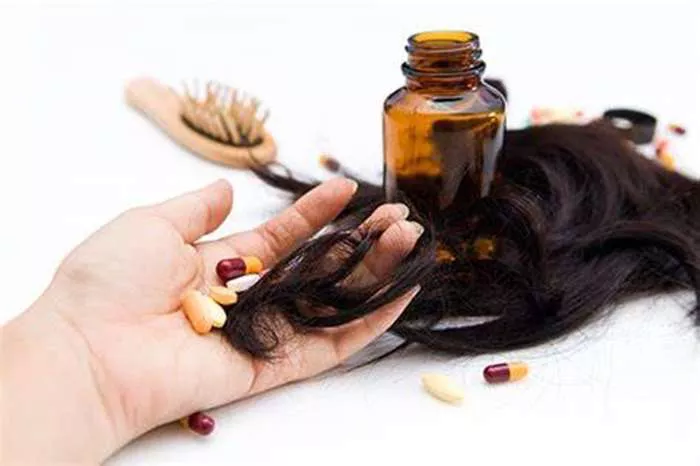Healthy, shiny hair starts with proper nutrition, and Vitamin A plays a starring role. This vitamin isn’t just good for your eyes or immune system—it’s a key player in maintaining strong, vibrant hair. In this guide, we’ll explore how Vitamin A supports scalp health, promotes growth, and protects your hair from damage, all while emphasizing the importance of balance.
What Exactly is Vitamin A?
Vitamin A is a fat-soluble vitamin found in two forms:
- Retinoids: Pre-formed Vitamin A from animal sources (e.g., liver, eggs, dairy).
- Carotenoids: Plant-based pigments (like beta-carotene in carrots) that convert to Vitamin A in the body.
This vitamin is crucial for cell growth, immune function, and vision. For hair, it’s vital for maintaining a healthy scalp and supporting hair follicles. Without enough Vitamin A, your hair may become dry, brittle, or even stop growing.
How Vitamin A Boosts Scalp Health
Your scalp is the foundation of healthy hair. Vitamin A helps by:
- Producing Sebum: Sebum, a natural oil, moisturizes the scalp and hair. Vitamin A stimulates the sebaceous glands, preventing dryness and flakiness.
- Preventing Dandruff: A dry scalp can lead to dandruff. Adequate sebum keeps the scalp hydrated, reducing irritation.
- Balancing Oil Production: Too little Vitamin A causes dryness; too much can lead to oily scalp. Balance is key!
Vitamin A and Hair Growth: The Connection
Hair grows in cycles, and Vitamin A supports the anagen (growth) phase:
- Cell Regeneration: It helps hair follicles produce new cells, making hair grow faster and thicker.
- Strengthening Follicles: Healthy follicles mean fewer broken strands and less hair loss.
- Blood Circulation: Vitamin A aids in maintaining a healthy blood supply to the scalp, nourishing follicles.
Fighting Damage: Vitamin A as an Antioxidant
Environmental stressors like pollution and UV rays create free radicals—unstable molecules that damage hair cells. Vitamin A fights back by:
- Neutralizing Free Radicals: This protects hair proteins (like keratin) and prevents premature aging.
- Reducing Breakage: By shielding hair from oxidative stress, strands stay strong and elastic.
Repairing and Strengthening Your Hair
Vitamin A doesn’t just prevent damage—it helps repair it:
- Healing the Scalp: It soothes inflammation and repairs skin cells, creating a better environment for growth.
- Restoring Shine: By maintaining sebum levels, hair stays naturally conditioned and glossy.
- Mending Split Ends: Stronger hair cuticles resist splitting, reducing the need for frequent trims.
Too Much of a Good Thing: Risks of Excess Vitamin A
Overdoing Vitamin A (hypervitaminosis A) can backfire:
- Hair Loss: Excess sebum can clog follicles, leading to shedding.
- Toxicity Symptoms: Nausea, dizziness, and skin irritation may occur with over-supplementation.
- Stick to Limits: Adults need 700–900 mcg daily. Prioritize food sources over pills unless advised by a doctor.
Best Sources of Vitamin A for Healthy Hair
Incorporate these into your diet:
- Animal Sources: Liver, fish oil, eggs, and dairy.
- Plant Sources: Sweet potatoes, carrots, spinach, and kale (rich in beta-carotene).
- Supplements: Use only under medical guidance to avoid overdose.
Using Vitamin A in Your Hair Care Routine
- Diet First: Eat a colorful mix of fruits and vegetables. Try a spinach salad or roasted sweet potatoes.
- Topical Products: Shampoos or serums with Vitamin A can nourish the scalp—but avoid overuse.
- DIY Treatments: Mix carrot oil (high in beta-carotene) with coconut oil for a moisturizing mask.
Are You Deficient? Signs to Watch For
Symptoms of low Vitamin A include:
- Dry, itchy scalp or dandruff.
- Brittle hair prone to breakage.
- Slow growth or thinning.
- Night blindness (a broader deficiency sign).
At-risk groups include those with poor diets, digestive disorders, or liver conditions.
Conclusion
Vitamin A is a hair health hero—when used wisely. Focus on a balanced diet rich in colorful veggies and lean proteins, and consult a professional before starting supplements. By nurturing your scalp and follicles, you’ll unlock stronger, shinier, and faster-growing hair.
Related topics:
What Vitamins Are Good to Strengthen Hair?
What Vitamins Are Good for Growing Hair Faster?
What Are Biotin Vitamins Good For?


